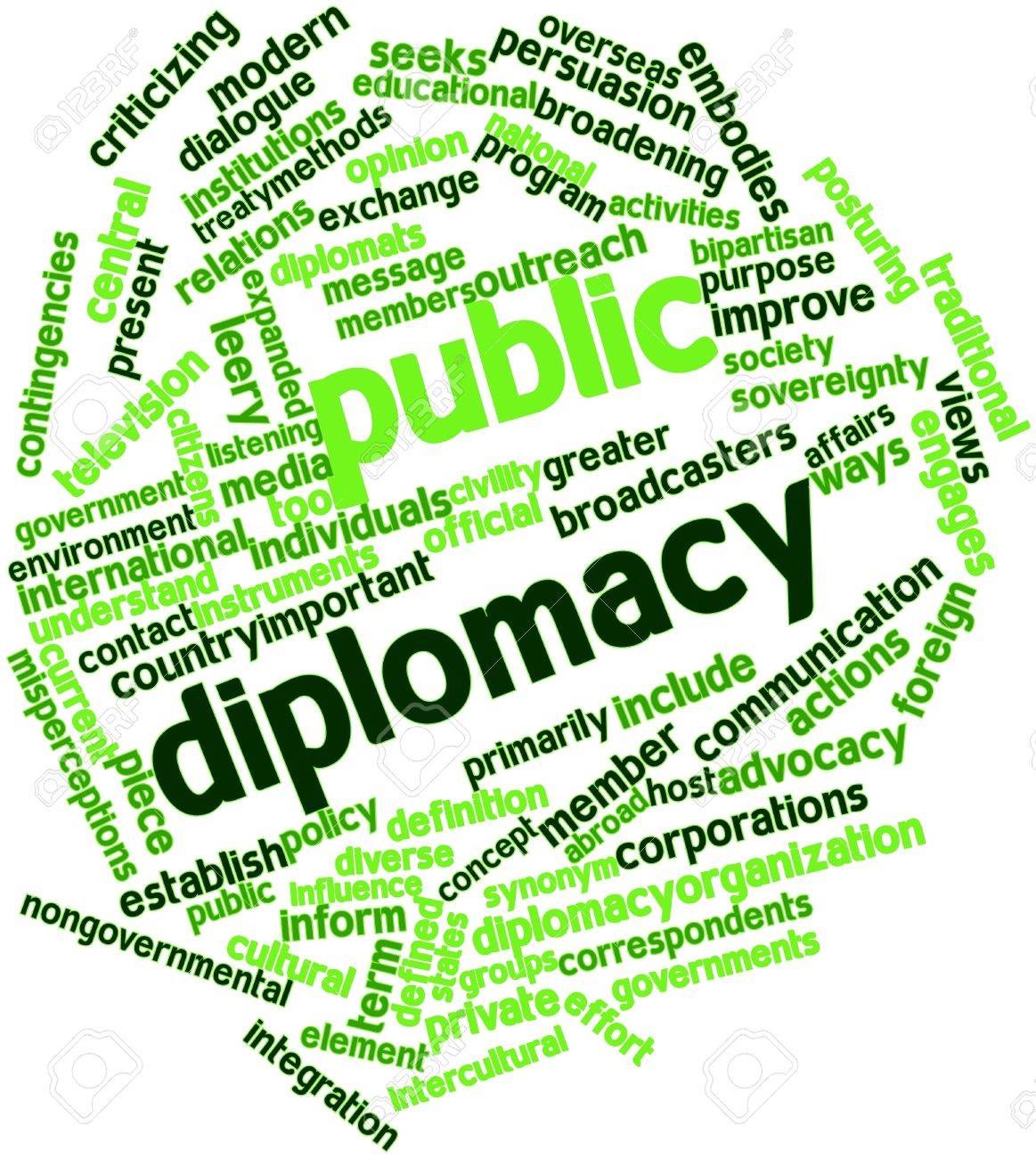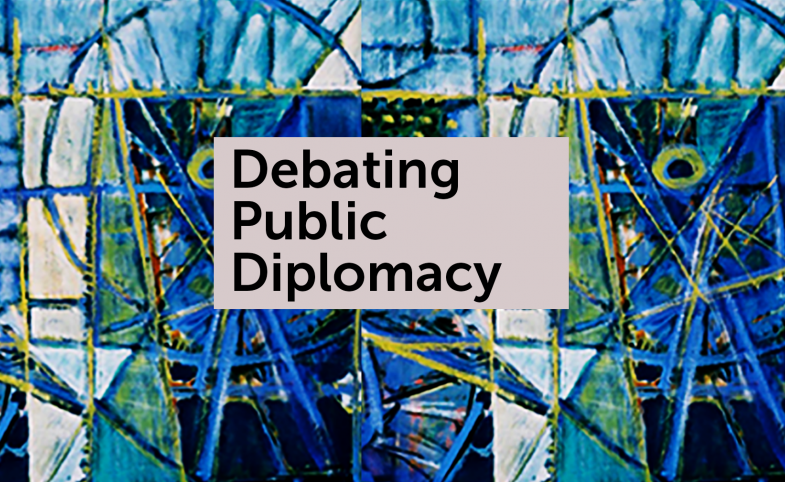Interview with the British expert in public diplomacy, who has been invited to Barcelona by the Public Diplomacy Council of Catalonia Andreu Barnils, english.vilaweb.cat, 07.05.2019
Andreu Barnils, english.vilaweb.cat, 07.05.2019
Nicholas J.Cull (1964) is an expert in public diplomacy [JB emphasis], historian and director of the Master’s Degree in Diplomacy at the University of Southern California. Mr. Cull has specialised in diplomacy in the digital age, the importance of cinema and television series in this discipline and has just published the book Public Diplomacy – Foundations for Global Engagement in Digital Age (Polity, 2019). Cull was in Barcelona last Friday, where he gave the inaugural lecture of the first public event of the Public Diplomacy Council of Catalonia (Diplocat) after the attempt by the Sànish government to close the entity. VilaWeb has interviewed Mr. Cull via email.
– Have you been following the Catalan case recently? What do you think about it?
– For many years I have pointed to Diplocat in my classes as an example of sub-state public diplomacy. I was shocked to learn that its activity had been challenged by the central government as it struck me as a good thing for Spain that its autonomous regions and cities were able to be present in international space. By analogy I think the UK is helped by Scotland being known internationally and having a voice and Canada is helped by Quebec having a voice and public/cultural diplomacy presence. I also think that the structure of Diplocat — drawing together regional stakeholders across sectors from trade unions and universities to the football club — is exemplary.– Former staff of Diplocat is being prosecuted by Spanish Judicial System. Its activities were actually banned for a while. You have been invited to its first public event. Did you know about it? What do you think about it?– I am aware that feelings are running high over the issue of Catalan independence and was personally shocked that the Spanish state clamped down in such a rough way on Catalonia and Diplocat. But I am an outsider and people I know and respect feel strongly on both sides. In terms of my area of expertise — public diplomacy — I have to say that I feel that the ruling of the Spanish constitutional court seemed to misunderstand the nature of public diplomacy and of international communication more broadly, and that I do not see diplomacy as the monopoly of the nation state. I see communicating with the world as a legitimate activity of regions, cities, civil society and other kinds of international actors. It would even go so far as to suggest there is a duty to communicate and build relationships.– Catalan Government declared Independence October 27, 2017. Not a single country recognised the new Republic. Why?
– I have not investigated this question but countries are required to respect the sovereignty of other countries, so both general and specific obligations to Spain would preclude recognition of a secessionist region. The world plainly accepted the Spanish government’s view that Catalan independence was illegal. Exceptions to this respect for sovereignty in recent years — Kosovo, South Sudan and so forth — have had a humanitarian dimension and involve outright war or its aftermath, which thankfully were not part of the Catalan case right now.– What could have been done differently from the point of view of Catalan diplomacy in order to get a better outcome?
– I am not sure that it is possible to present the issue of Catalan independence in such a way that international audiences will see it as of such significance that they have to break their relationship with Spain and recognize Catalonia. What Catalan diplomacy (and public diplomacy) can do is continue to build relationships internationally so that the distinctiveness and value of the region is appreciated and its well-being is seen as relevant to international audiences. I believe that part of the security of a state or region is its reputation, and Catalonia’s future — inside Spain or outside — will benefit from building this kind of reputational security.– What would be your advice to Spanish State in order to address the Catalan issue?
– To be honest, I would not dare to advise the Spanish State on so complex a matter, but my work always stresses the value of listening and that is where I would begin. I also talk about Reputational Security and would advise any nation to pay attention to its reputation, especially in matters of management of dissent. Heavy handedness comes at a cost in terms of the attractiveness of the state to outsiders. Diversity, however, is attractive and an asset to the reputation of any state able to maintain that necessarily delicate balance with its autonomous regions.– What are the most important changes that diplomacy around the globe has experienced due to the digital world? What makes the digital world so influential?
– The digital world has created new tools but has also generated new problems. I’ve been struck by the way in which disinformation has re-emerged as a problem. This is rather like an old virus returning. As with the recurrence of a virus there will be an internal explanation of a particular mutation; with digital it is the emergence of new kinds of technologies, but there is also a contextual explanation. A virus needs a weakened population to really thrive (hence the devastating Spanish flu at the end of World War One) and disinformation needs a weakened body politic. We have all been weakened by widening inequalities in our societies and the economic downturn, hence the level of recent disruption. The road back must including addressing the real problems which are exploited by disinformation.On a different subject I also think that in a digital world a public diplomat does better if they ask “who can i empower’ rather than ‘what can i say’ to persuade my audience.– What are the main differences between old and modern diplomacy?
– In the old days engaging a foreign public was an optional extra. Today it is essential and indeed it is the only way to address the shared problems facing the world. Publics and the media have to be part of diplomacy because they operate in international space. I think the best new diplomacy doesn’t just seek to engage publics by addressing them, it works to connect publics and build relationships and partnerships across frontiers.– Your studies included cinema as a tool for public diplomacy [JB underlining]. Can you give us some example of movies or TV series that have been used as diplomatic tools?
– I think that culture as a whole is important for building international reputations, and cinema has been a really important part of building the reputation — or Soft Power — of many significant countries today, not only the US but also India, Italy, France and many other. One of today’s great success stories is Turkey whose soap operas are viewed widely overseas. Admiration for Turkey develops in their wake. In my recent book I tell a story of a Mexican diplomat who would he could work with a particular African war lord because he was a fan of Mexican soap opera. I would argue that film and TV are resources for diplomacy and can help, which is not quite the same thing as being tools. There are examples of single films raising issues or attracting attention to a state. I have been told by one Kazakh official that even though the movie Borat mocked his country, it has put Kazakhstan on the world’s mental map. Knowing one wrong thing about Kazakhstan is at least a beginning and an opportunity for a conversation about reality. It is an opportunity which Tajikistan and Uzbekistan lack.– Do we call Public Diplomacy what we used to call PR? What are the difference between Public Diplomacy and Public Relations?
– One difference is context. PR and advertising have a commercial context while public diplomacy and propaganda have a political context. To be honest, the term Public Diplomacy was coined to allow the US in the 1960s to distinguish between their information work and the propaganda of the Communist bloc. Once the term existed diplomats themselves developed a distinct practice which differs from propaganda by being more open to listening and two-way communication, and open to mutual transformation. No propagandists seeks to be transformed through contact with their audience. It is a one-way street. PR is now sometimes theorized to emphasize the two-way dynamic also but I see it as lacking the moral dimension which has to be part of public diplomacy. PR scholars will disagree with me on this. Ultimately you can’t use public diplomacy to make a bad policy good — you use it to listen to foreign publics and avoid the bad policy in the first place or to understand that you have to leave it behind. It should be more that PR and more than propaganda, but isn’t always.
Public diplomacy Nicholas J.Cull: “I do not understand diplomacy as a monopoly of the...








